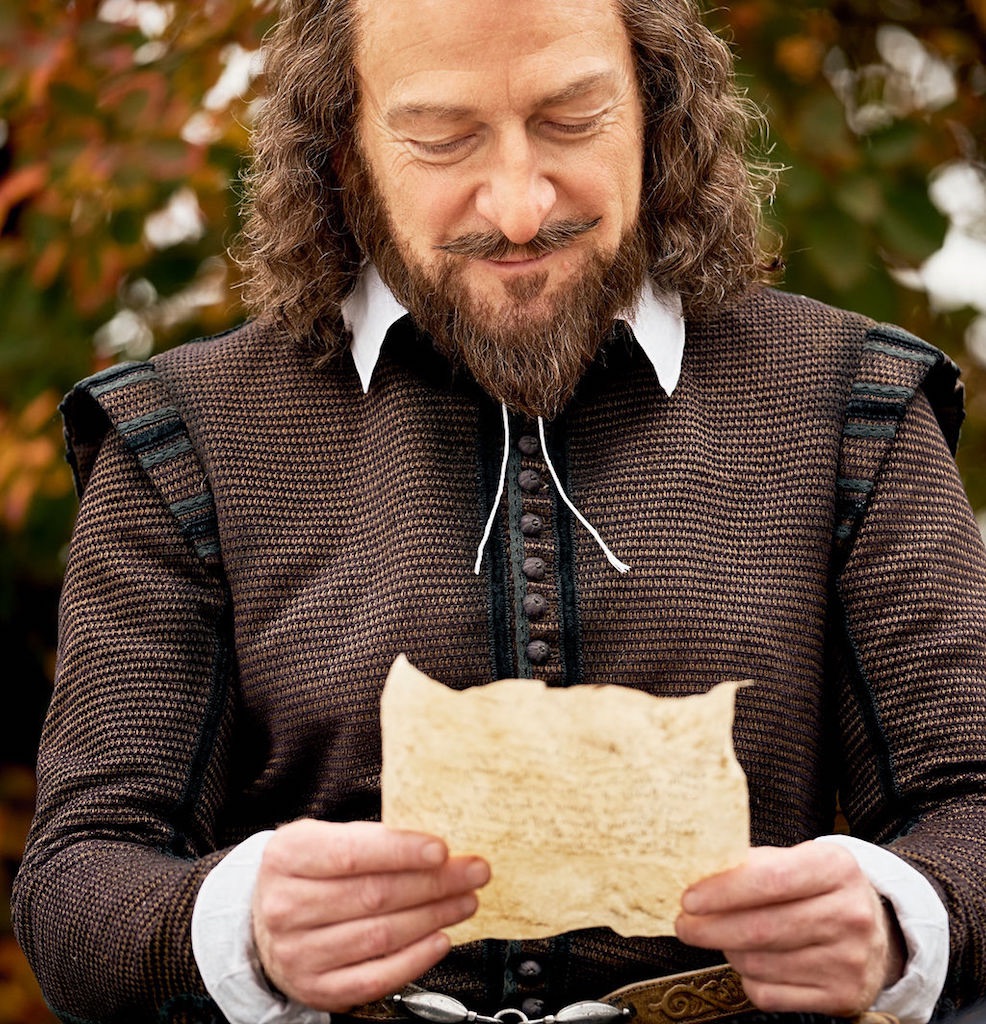Review:
"All is True"

Release Date: May 31, 2019
Rating: PG-13 Running Time: 101 minutes Other than Laurence Olivier, no actor/director is more closely associated with William Shakespeare than Kenneth Branagh. He made his name as a filmmaker with his adaptations of Henry V, Much Ado About Nothing, and Hamlet. So it was inevitable that Branagh would one day portray the Bard onscreen. Now aged 58, Branagh is six years older than Shakespeare when he died in 1616 in his English hometown of Stratford-upon-Avon. In the Ben Elton-penned All is True, Branagh offers a retired Shakespeare who finds it harder to connect with estranged family members than to write a play that would stand the test of time. All is Trueis the alternate title to Henry VIII, the play that was being staged when Shakespeare’s beloved Globe Theatre in London burned down in 1613. But do not take the film’s title at face value: not much is known about Shakespeare’s personal life, especially during his final days in Stratford-upon-Avon, so All is Trueis pure speculation on part of Elton and Branagh. The latter also directs this sorrowful and slow-moving examination of an artist who has abandoned his art and is unable to find much meaning in his twilight years. Branagh and Elton position the Globe Theatre as a physical representation of Shakespeare’s artistic compulsions and professional ambitions. The destruction of the Globe distinguishes Shakespeare’s desire to write. So he returns to Stratford-upon-Avon to be with the wife and the two daughters he has barely seen over the course of several decades. No wonder his wife Anne, played by Judi Dench, treats him like a guest in their home and that daughters Susanna and Judith (Lydia Wilson and Kathryn Wilder, respectively) feel distance from him. Being back in Stratford-upon-Avon also forces Shakespeare to finally mourn the loss of his son Hamnet, who died at age 11 in 1596. Shakespeare’s long-delayed response to Hamnet’s death—initially attributed to the plague—provides All is Truewith the entry point it needs to prompt Shakespeare to look back at his career, put his accomplishments in perspective, and wonder what could have been had Hamnet. In Hamnet, Shakespeare saw his heir not just to his fortune and estate but to his artistic endeavors. Shakespeare’s elevation of Hamnet allows Branagh and Elton to create further friction between Shakespeare and Hamnet’s twin sister Judith, who harbors significant guilt for Hamnet’s death. This estranged relationship drives All is True’s narrative as it strives to make sense of the flaws that afflicted but not necessarily defined our greatest writer. “I never let the truth get in the way of a good story,” Shakespeare notes in All is True. Regardless of how much Branagh and Elton play with the truth, they have not concocted a good story worthy of its Branagh’s primary influence. All is Trueunfolds as a lethargic family drama that fails to find much intrigue in the dysfunctional relationship between Shakespeare and Judith and the efforts of Shakespeare to rekindle his marriage to Anne, despite strong-willed performances by Wilder and Dench, respectively. Branagh and Elton inject gender politics into All is True—first with Susanna’s marriage, then with Shakespeare’s treatment of Judith—but they fail to make any salacious points about 17th-century treatment of women beyond the obvious. All is True also seeks not to further mythologize Branagh’s greatest influence but to look pastthe famous playwright to provide a critical assessment of the man he may have been. But Branagh and Elton imagine a Shakespeare who suffers from such an inferiority complex—stemming from his humble roots and pre-fame past—that he is often intolerable to be around. All is True is at its best when it focuses on Shakespeare’s efforts to mourn for Hamnet. Branagh finds pain and anguish in Shakespeare’s grief that is genuine and affecting. At the same time, Branagh does not shy away from displaying the emotional harm Shakespeare causes other loved ones for aggrandizing his late son’s talents and accomplishments as part of his grieving process and his obsession with being denied a male heir. Also, the listlessness Shakespeare experiences as a retired playwright throughout All is True is reflected in Branagh’s slow and aimless direction. Combine this with All is True’s austere aesthetic and all that’s left for Branagh to rely on to keep his audience engaged are the strong performance he elicits from himself and his cast. The monotony of All is True is broken up for about 10 minutes thanks to Ian McKellen’s brief but delightfully outsized depiction of Shakespeare’s flamboyant patron Earl of Southampton. No matter how much he is petitioned by the Earl of Southhampton, Shakespeare refuses to once again put pen to paper. He is home and he intends to stay at home to live out his final years. But this is less of a glorious homecoming than a retreat for an artist muted by tragedy. For Branagh, All is Truerepresents a return to his roots. He has not made a film with ties to Shakespeare since 2006’s As You Like It for HBO, and has spent this decade working on remakes and franchise films (Thor, Jack Ryan: Shadow Recruit, Cinderella, and Murder on the Orient Express). While All is Trueis not an essential Shakespeare biography, it is good to see Branagh reconnect with the Bard after all these years. Robert Sims Aired: May 30, 2019 Web site: https://www.sonyclassics.com/allistrue/ |
|
